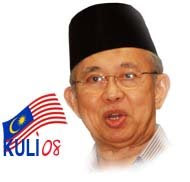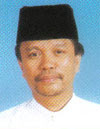ZAINUL ARIFIN: Inevitability of Umno-Pas 'muzakarah'
By : Zainul ArifinIT would have happened anyway, the meetings between Umno and Pas, if they had not already.
Talks of meetings between the two to discuss issues affecting the ummah began surfacing soon after the 12th general election, once the dirty business of campaigning and electioneering were out of the way.
In fact, the talks were probably hastened by the outcomes of the elections.
Non-Umno Barisan Nasional component members in West Malaysia did disastrously for what is believed to be their affiliations with Umno -- remember the posters "A vote for BN, is a vote for Umno"?
The victories of those -- Parti Keadilan Rakyat, Pas, DAP, etc -- promising to temper Umno's Malay dominance doctrine have suddenly made it politically incorrect and dangerous, even for the BN, to champion Malay issues.
At the same time many Malays were uncomfortable by the very public debates on what they perceived to be their rights and privileges, including that of Islam.
A major opposition leader could even belittle a monarch -- the very symbol of Malayness -- with nary a peep from Malay politicians in PR.
Perhaps it is a trade-off to nurture the nascent PR.
Thus, paradoxically, despite their numbers, the Malays seem to be losing their grip on arguments affecting them. Their fractious political base has made them politically benign.
Among the Malay-dominated parties, it is now left to Umno to talk on Malay issues, as Pas talks of Islam, and PKR, the new libertarian, champions no Malay agenda, per se.
Umno is not in the best of health of late, and PR is a Malay majority coalition, with no dominating Malay agenda.
Race has always been a factor in our politics, as in any country with multiracial make up. The difference is that for us race has always been touted as a rallying point for political activism.
From there, parties form coalitions and partnerships to bridge racial differences.
Political realities and political nirvana are obviously two different things.
Political realities are often grounded on messier constituents, such as race and religion, which both Pas and Umno claim to generally represent and idealise.
Obviously both of them cannot be right.
But on issues such as race and religion the consequences of disagreements, of course, can be dire.
Putting religious values to political affiliation have led to -- kafir-mengkafir -- labelling non-party members as infidels, even disallowing marriages between family members of different parties, and declaring haram meat slaughtered by others.
This rabid political loyalty, while much courted during polls, divides and splits the Malays, at times irreparably. Hence, the muzakarah, whose ultimate aim is for the coming together of the Malays, even if not politically.
Understandably, PKR and DAP while publicly nonchalant about the meetings, were obviously not too happy. Their leaders all said that PR was still strong, but you could sense the blue funk building up.
Is the muzakarah the pre-cursor of Pas re-joining BN, which many in PR are wary about?
Pas spiritual adviser Datuk Nik Abdul Aziz Nik Mat said it would mean being bitten by the same snake from the same hole, again.
A merger is unlikely as there exist fundamental ideological differences, which makes PKR joining BN to be a likelier possibility than Pas' second leap of faith.
Perhaps the talks could bring Umno and Pas to a common ground on certain issues affecting Islam and Malay rights, while agreeing to disagree on how best they would approach the issues.
It is akin to what many suspect to be the "cooperation" between Chinese-led parties like MCA, DAP and Gerakan on issues affecting common interests, such as on Chinese schools or language.
At the very least the Umno-Pas talks could lead to less excessive politicking and lessen the burden of Malay Muslims having to live with political fatwas and dictates.











